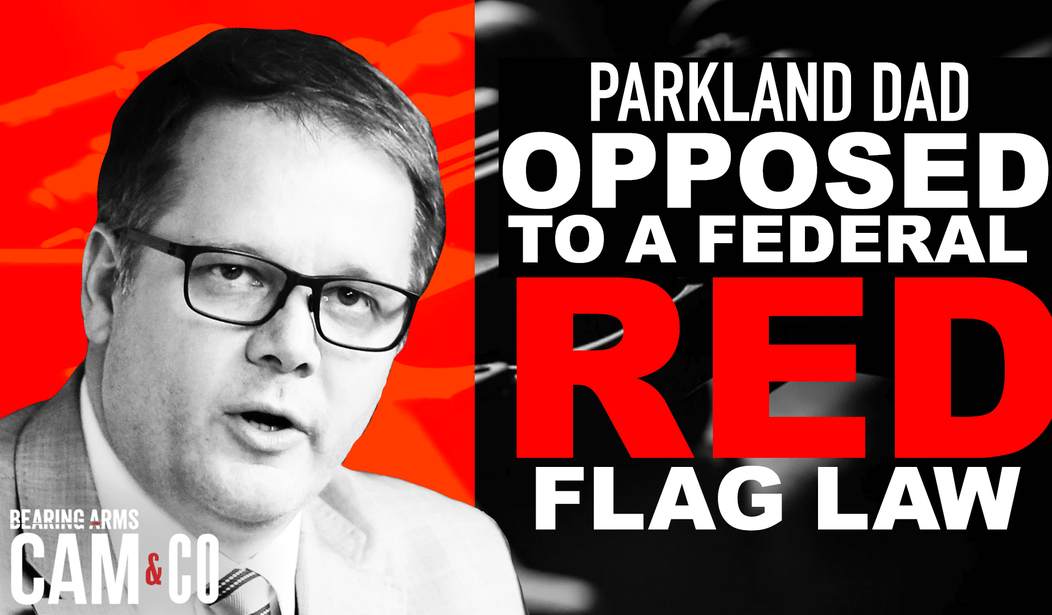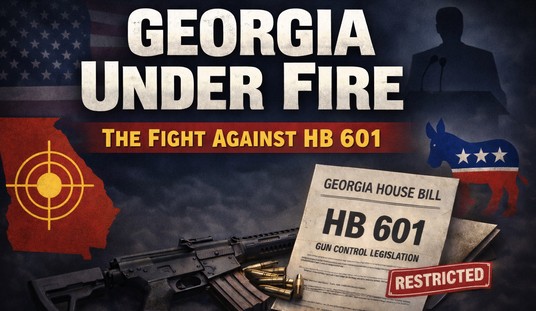Have you heard about HR 2377? The Federal Extreme Risk Protection Act of 2021 hasn’t reached the floor of the House of Representatives yet, but the red flag gun seizure legislation introduced by Georgia Democrat Lucy McBath was marked up in the House Judiciary Committee in late October, and with more than 100 co-sponsors it’s one of the few gun control bills in Congress that may actually have a chance of getting a full vote in the House in coming months.
On today’s Bearing Arms’ Cam & Co, we’re joined by my friend Ryan Petty, whose daughter Alaina was murdered at Marjory Stoneman Douglas High School in Parkland, Florida in 2018. Ryan has been a guest on the show on several occasions, and I always appreciate his thoughtful takes on 2A topics, but this was one of our most interesting conversations yet.
See, Ryan and I have a little different opinion about red flag laws. I’m opposed to them in theory, while Petty believes that they can be of some utility as long as there are proper safeguards in place to ensure things like due process protections and mental health treatment for those who are determined to be a danger to themselves or others. The proposed federal red flag law, however, lacks many of the safeguards that Petty believes are necessary.
Specifically, Petty believes McBath’s bill makes it too easy to subject someone to a false accusation, with almost no consequences for doing so. Petty says that red flag laws should be limited to use by law enforcement in order to reduce the chances that an irate family member, spouse or significant other would try to red flag someone out of a desire for retribution, but the language of HR 2377 allows for parents, spouses, siblings, children, step-children, adopted children, dating partners, partners of children together, roommates, domestic partners, anyone with a legal parent-child relationship with the subject of the petition, and anyone who is acting or has acted as a legal guardian of the subject of the petition.
And what happens if a false report is filed? Petty points to really vague language that says if someone is found to have submitted materially false information for “shall be fined not less than $1,000, in addition to any other penalty authorized by law, as the court deems necessary to deter such abuse of process.” The key phrase there is “any other penalty authorized by law”, because the only penalty authorized by the proposed law is a $1,000 fine. Either the language is so open ended as to be utterly meaningless, or it’s a legislative slight of hand designed to make it appear as if the law will be tough on those filing a false report while in actuality delivering a financial slap on the wrist.
Another issue with HR 2377 is the fact that there’s absolutely no mention of mental health treatment in the bill. Once someone’s been determined by a judge to be a danger to themselves or others, their guns are taken and they’re left with their knives, pills, matches, gasoline, and anything else they might turn into a tool of self or mass destruction. If the purpose of an Extreme Risk Protection Order is to deal with someone who poses an extreme risk, why does it only take their guns away?
Ultimately, though, Petty’s biggest issue with the federal red flag bill is that it would create a federal red flag law. As Petty says, trust in the federal government is already at precipitously low levels, and empowering federal agents to confiscate firearms, even for a “temporary” six month period, would only do more damage to the lack of confidence many of us have in our federal institutions. But Petty also believes that red flag laws are best administered at the state level, where there’s more potential for citizen input and revisions to the law.
As I said, I’m opposed to red flag laws on general principles. I believe they’re a dodge used by politicians to avoid addressing the much tougher topic of improving access to mental health, even though the laws are often billed as mental health proposals. I think they’re gun control laws masquerading as mental health measures, But honestly, politicians like Lucy McBath don’t care what someone like I think. But it’s worth noting when someone who isn’t automatically against red flag laws says one is fundamentally flawed, and it’s a damn shame that McBath and the other co-sponsors of HR 2377 aren’t willing to listen to someone like Ryan Petty either.








Join the conversation as a VIP Member